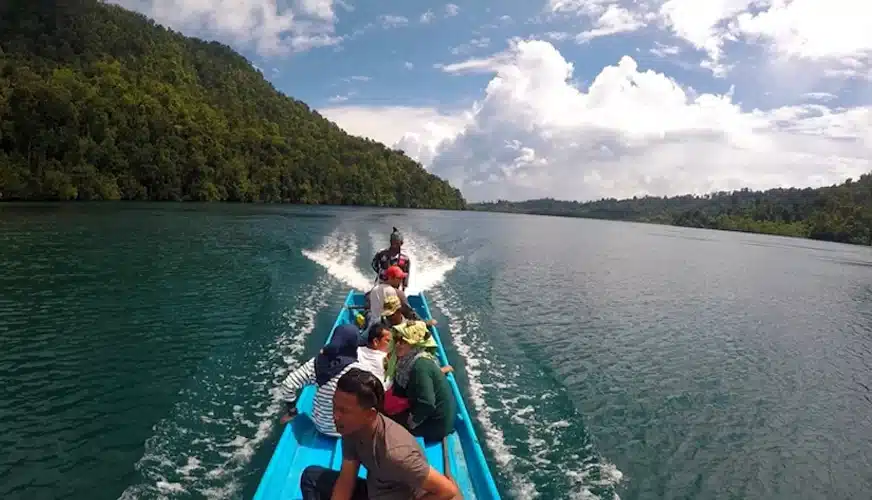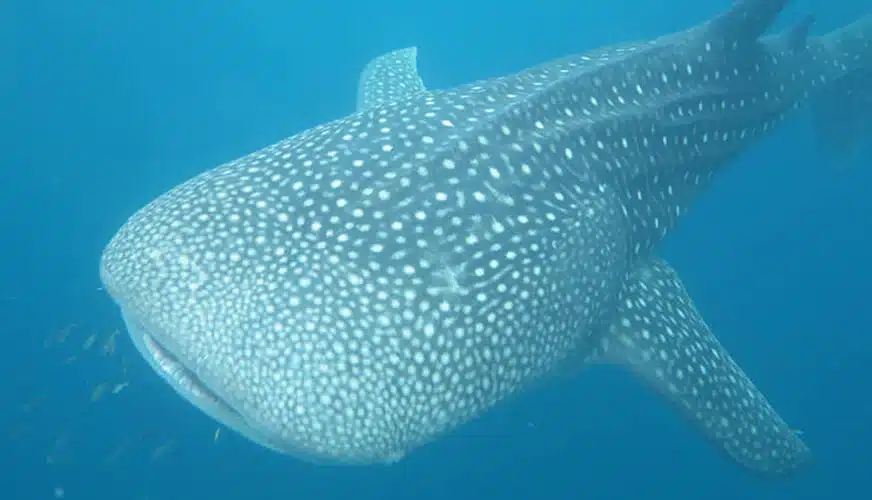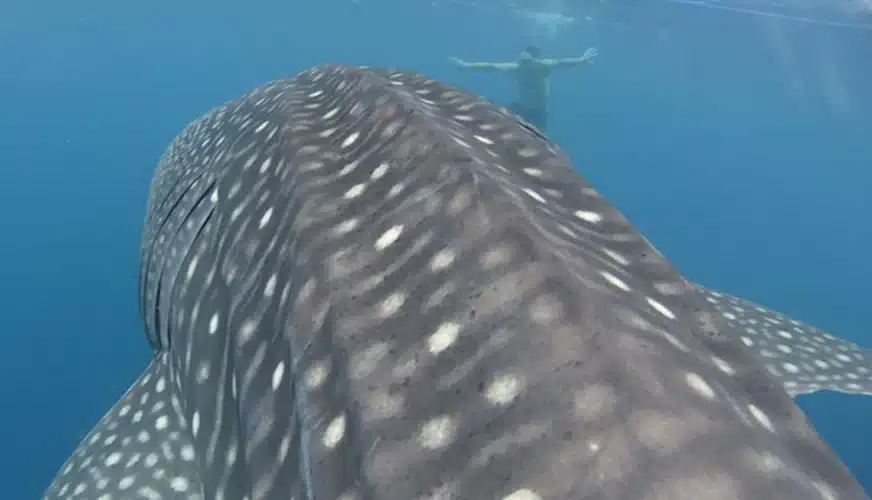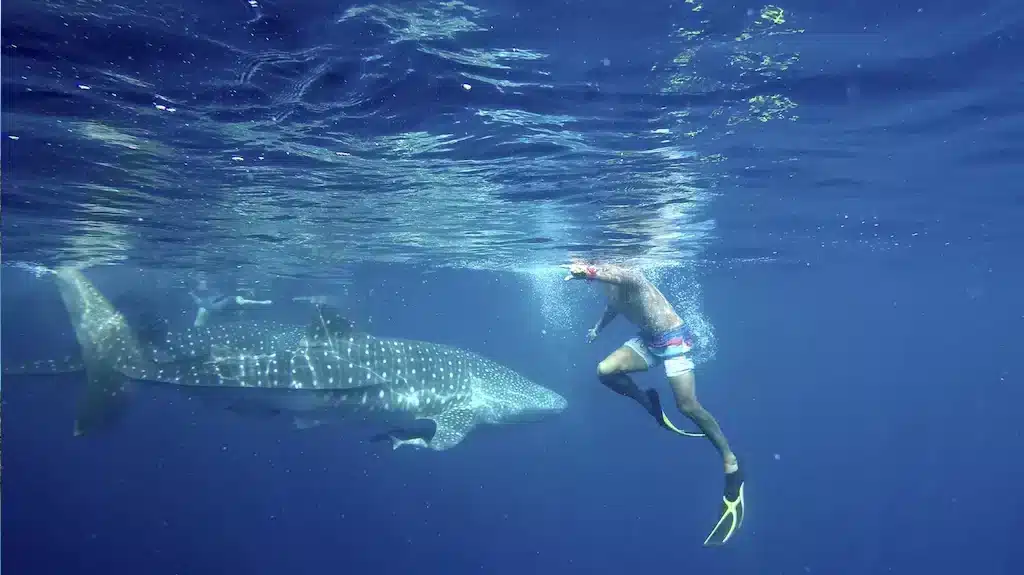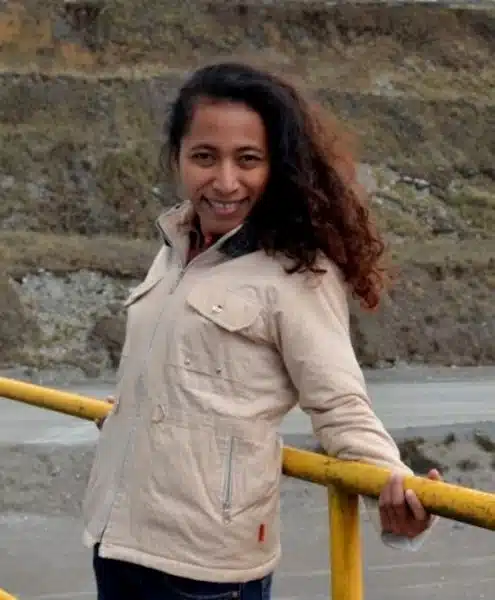Exploring the underwater world to find nemo and see beautiful corals is absolutely great but has also become a common thing to do once you get to Papua. But what if this time we can take you to swim with the largest fish on earth? Would you dare?
Let me first introduce myself: my name is Tasya and I was born and raised in Papua. Do not ask me how big my love is for this rich region in Indonesia. From its beautiful nature to its unique culture and history, Papua is truly a destination on its own. I just started my career in Travel Papua, a Tour Operator that offers costumized tours for those who love the wilder destinations. My love for Papua has even become bigger, after starting to work in Travel Papua. I am learning a lot of new things. To work and to learn together with the founders of this company: the gorgeous bule and her husband ,I get the chance to explore more of my beautiful Island. I hope that one day I will also be able to show you some of the places in Papua.
I want to share my experience about the whale sharks with you. Many say the biggest fish is the whale. Wrong. The whale is not even a fish, it belongs to a group of mammals swimming in the sea. The whale shark or the Rhincodon Typus is the largest fish species in the world. This species can reach a length of 20 – 32 feet weighing more than 20 tons and can reach the age of 100 years. Although still a family of the great and scary white shark, the behavior of the whale shark is very opposite.
From the northeastern edge of Indonesia, precisely in the waters of Cenderawasih Bay, Nabire, Papua you can experience the sensation of swimming with these friendly giants. The small town of Nabire is the gateway to the Cenderawasih Bay National Park area. The National Park is 1.453.500 hectares and there are at least 456 species of corals and 877 species of reef fish in the region.
Just last month our Travel Papua crew organized a tour for a Swiss couple to the whale sharks in Sowa, Yaur District, Nabire Regency. Sowa is located 120 km from the city centre of Nabire. It is a 3 hours ride and the last hour goes over bumpy terrain. In addition to this remote location, Sowa is still unknown among tourists.
The sandy beach in Sowa stretches over nearly 10 km, which makes it perfect to do a sunset stroll when the tide is low. While looking to the horison, this unique location lets you wonder about what lies underneath the waters, away from your sight…
We did a 2 day trip to swim with the whale sharks and spent the night in a new home stay in Sowa beach which belongs to our old friend, Ika. Her home stay is simple but in a very spacious and beautiful setting. The high pine trees covers you from the hot burning sun during the day. We felt like the earth was ours only.
Hinotanibre is the name for the whale shark in Yaur Language or the locals also call it the ‘Gurano Bintang’ (bintang means star), because the white spots on its dark skin are like stars in the night. This was not our first time to swim with these giant creatures, yet it felt like it was! When we got by speedboat to the bagan (fishing plat form) the giants revealed themselves. There were 2, an adult and a smaller one and we were the only tourists around! Their large shapes were almost equal to the size of a bus and it made us feel very small and vulnurable. But to see how gracefully they swam gave us inner peace and a feeling of great appreciation to swim in the same waters with them. Occasionally their heads went up to the surface and their mouths were wide open to suck the water and to filter the planktons and the little fish that were thrown from the bagan. Really, the experience was so amazing!
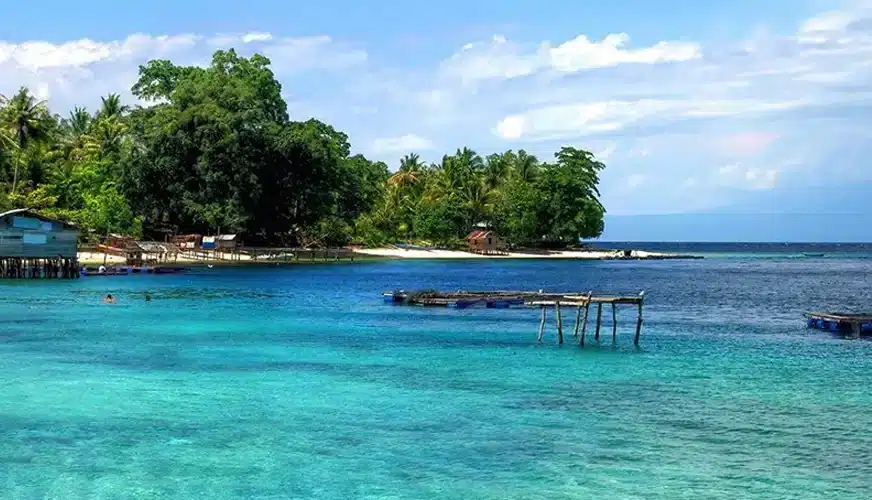
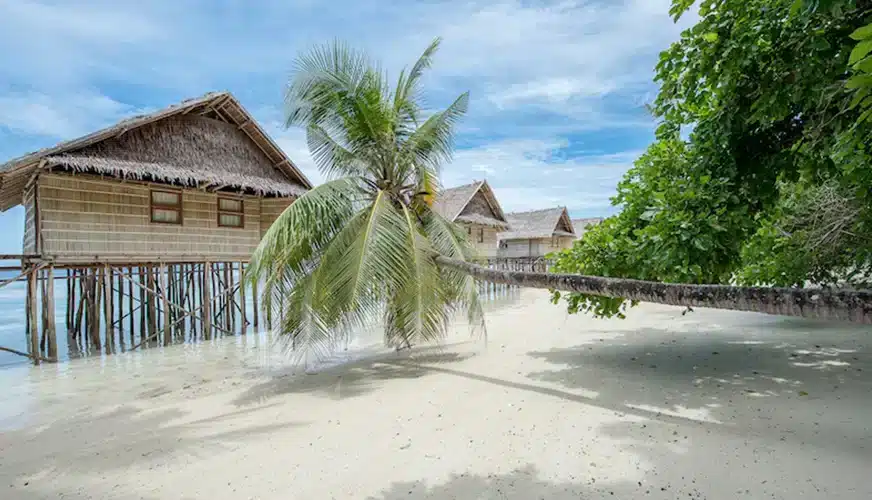
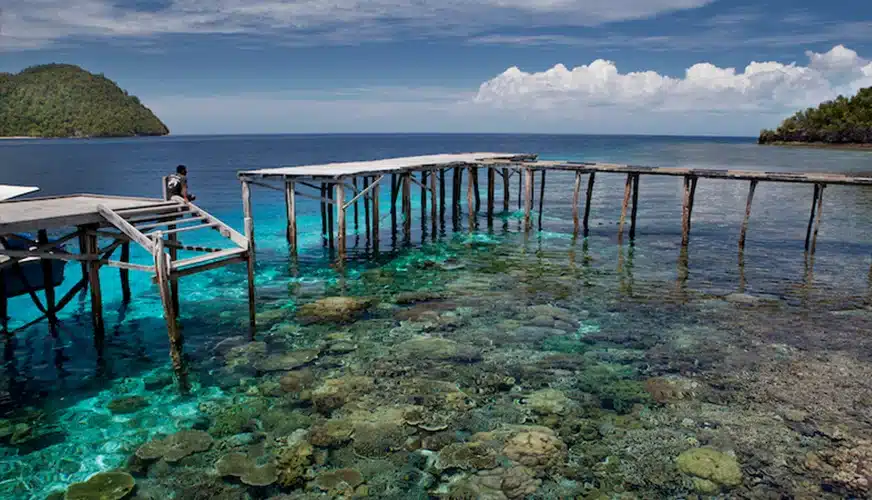
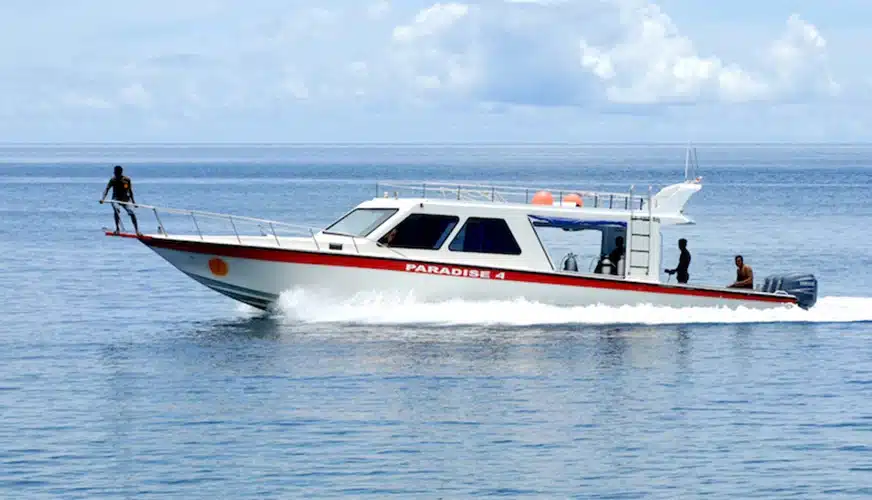
We spend two days in and around the waters of Sowa and we feel like this spot should definitley be included in your bucket list! Let the city and its noisy vehicles take place for the sound of the waves. And let your phone be for what it is, because without any receptions you will only wake up to the sounds of the birds in the morning.
We hope to soon organize your next trip to Sowa and its whale sharks. Conservation and eco tourism involving all parties to work together is the only way for the whale sharks and Cenderawasih Bay National Park to survive. Also for our future generation, whom I do not want to recall the memories of this treasure through picture frames, but from immediate creating a memorable experience. Hopefully!
